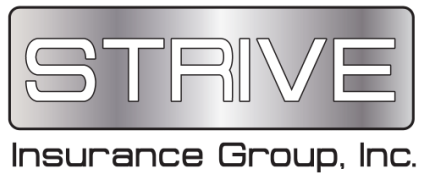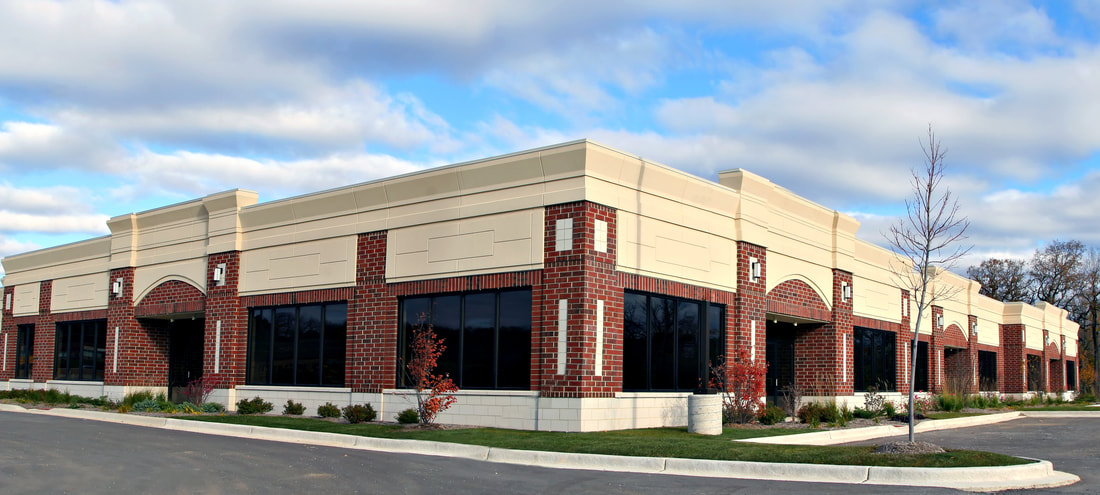|
As a property manager, you work hard to maintain properties and ensure tenants are satisfied. However, unexpected events can occur, and insurance claims may be necessary. Here are three examples of property manager insurance claims and how they can help:
Example 1: Liability Claim - Slip and Fall
Need help navigating property manager insurance claims? Contact me to discuss your unique needs and ensure you're adequately covered. As a medical professional, you understand the importance of protecting your practice from unforeseen risks. Insurance is a crucial aspect of risk management, and finding the right coverage can be overwhelming. In this article, we'll guide you through the process of getting the best insurance for your medical office.
Assess Your Risks
Ready to safeguard your medical office? Contact me at to schedule a comprehensive insurance review. Let's work together to ensure your practice thrives. Business interruption coverage is crucial to commercial property insurance, providing financial support when unexpected events disrupt business operations. This coverage is especially important for property managers and medical office buildings, as it helps ensure continuity of operations and maintenance of revenue streams. In this article, we'll delve into the details of business interruption coverage, its benefits, and how it applies to these buildings.
What is Business Interruption Coverage? Business interruption coverage, or business income coverage, is an extension of commercial property insurance. It reimburses lost business income and expenses when a covered event, such as a fire, natural disaster, or equipment failure, forces a business to suspend operations. Key Benefits for Property Managers and Medical Office Buildings
As a landlord, your rental properties are a significant source of income. But what happens when unexpected events like natural disasters, fires, or tenant damage disrupt your rental operations? Without proper insurance coverage, you may face financial losses and even risk losing your investment.
We'll explore the importance of Business Interruption and Extra Expense insurance for landlords, and how these policies can help mitigate financial losses and ensure continuous rental income. Business Interruption Insurance: A Safety Net for Landlords Business Interruption insurance (also known as Business Income insurance) helps replace lost rental income when your property becomes uninhabitable due to a covered event. This policy provides financial support during the repair or rebuilding process, ensuring you can continue to meet your financial obligations, such as:
Extra Expense Insurance: Covering Unforeseen Costs Extra Expense insurance helps cover unexpected expenses incurred while your property is being repaired or rebuilt. This policy can help pay for:
Real-Life Scenarios: Why These Policies Matter Fire damage: A fire destroys a portion of your rental property, leaving it uninhabitable. Business Interruption insurance helps replace lost rental income while repairs are made, while Extra Expense insurance covers temporary housing for displaced tenants. Hurricane damage: A hurricane causes significant damage to your property, requiring extensive repairs. Business Interruption insurance ensures you can continue paying your mortgage and other expenses, while Extra Expense insurance helps cover emergency repairs and debris removal. As a landlord, protecting your rental income is crucial. Business Interruption and Extra Expense insurance policies provide a financial safety net, ensuring you can weather unexpected events and keep your rental operations running smoothly. Don't leave your rental income to chance – consider investing in these essential policies to safeguard your investment and ensure a steady stream of income. Protect your rental properties today! In the innovative world of biotechnology, firms are at the forefront of scientific breakthroughs, from pharmaceuticals to genetic research. However, with great innovation comes great risk, particularly in terms of liability. Professional liability coverage, also known as errors and omissions (E&O) insurance, is crucial for biotech firms. Here’s why:
1. Protection Against Legal Action Biotech firms are involved in complex and often groundbreaking research and development. The outcomes can sometimes lead to unexpected side effects or failures that might result in harm or financial loss to a client or third party. Such scenarios can lead to costly lawsuits. Professional liability insurance helps cover the legal fees and settlements, which can be exorbitant, especially in high-stakes fields like biotechnology. 2. Maintaining Credibility and Trust For a biotech firm, maintaining credibility is crucial. A single lawsuit can tarnish a company's reputation, affecting its ability to secure funding or partnerships. Professional liability insurance not only covers financial losses but also helps in managing public relations crises, allowing a company to handle legal battles discreetly and efficiently. 3. Compliance with Industry Standards In many parts of the world, regulatory bodies require biotech firms to have professional liability insurance as part of their licensing criteria. This is not just a bureaucratic tick-box but a safeguard that ensures the firm can cover damages if something goes wrong, thus protecting consumers and business partners. 4. Encourages Risk Taking and Innovation Knowing that there is a safety net in place, biotech firms can pursue innovative research and development with less fear of financial ruin from potential legal issues. This encouragement of risk-taking is essential in a field that relies on constant innovation to push the boundaries of science. 5. Financial Stability Litigation can be incredibly costly. Without appropriate insurance, a biotech firm might face financial instability or even bankruptcy in the event of a significant claim. Professional liability insurance provides a buffer that can help ensure the company survives financially after facing a claim. 6. Attracting Investment Investors are more likely to invest in companies that have managed their risks well. Professional liability insurance is often seen by investors as a sign of prudent management and operational maturity, making the firm a more attractive investment opportunity. 7. Global Market Accessibility Biotech firms often work in multiple countries, each with its own legal and regulatory requirements. Professional liability insurance can be tailored to meet these diverse requirements, facilitating smoother international operations and expansion. The biotech sector's inherent risks demand robust risk management strategies, with professional liability coverage being a cornerstone. Such coverage not only protects against potentially devastating financial and reputational damage but also supports the firm’s operational and strategic objectives. In the volatile yet exciting world of biotech, professional liability insurance isn’t just an option—it’s an essential part of ensuring a firm’s longevity and success. The medical device industry plays a pivotal role in global healthcare by providing tools and technologies that diagnose, prevent, monitor, and treat a wide array of diseases and conditions. However, the development, manufacturing, and distribution of medical devices entail significant risks, necessitating comprehensive insurance coverage to protect against potential liabilities. Here are three critical types of insurance every medical device business should consider:
1. Product Liability Insurance What It Covers: Product liability insurance is essential for any business that designs, manufactures, or sells medical devices. This type of insurance protects the company if a product it sells causes bodily injury or property damage to a third party. Given that medical devices can directly impact patient health, the risks are particularly high. Product liability claims can arise from manufacturing defects, design flaws, or inadequate instructions/warnings. Why It’s Important: In the medical device field, even a small defect can lead to significant adverse outcomes for users. The costs associated with defending these claims and any resultant settlements can be astronomical. Product liability insurance helps ensure that a company can survive financially after such claims. 2. Professional Liability Insurance What It Covers: Also known as errors and omissions (E&O) insurance, this coverage is crucial for businesses involved in the service side of medical devices, such as providing training on equipment use, maintenance, or calibration. It protects against claims of negligence or harm that result from mistakes or failure to perform. Why It’s Important: Medical device businesses often provide highly technical and specialized advice and services. Errors in these areas can lead to serious consequences, potentially harming patients and exposing the business to liability. Professional liability insurance helps cover the legal costs and any damages awarded, protecting the company’s financial health. 3. Cyber Liability Insurance What It Covers: Cyber liability insurance is increasingly important for medical device companies, especially those involved in producing and managing devices connected to the internet or other networks (IoMT - Internet of Medical Things). This insurance covers the risks related to data breaches, cyber-attacks, and other technology-related vulnerabilities, including costs related to recovery, notification, legal fees, and any resulting fines or penalties. Why It’s Important: Medical devices often handle sensitive patient data, making them a target for cybercriminals. A breach can compromise patient privacy, result in regulatory penalties, and damage the company’s reputation. Cyber liability insurance helps mitigate these risks by providing financial and expert support in the event of a cyber incident. Navigating the complexities of the medical device industry requires a thorough understanding of the risks involved. By securing product liability, professional liability, and cyber liability insurance, medical device businesses can safeguard their operations, protect their financial stability, and maintain their reputation in a competitive and rapidly evolving market. Together, these insurance coverages form a robust shield against many of the common hazards these businesses face, allowing them to focus on innovation and growth with peace of mind. In the life sciences industry, we know you have to innovate to stay ahead. Companies in the industry compete and strive to be the first to develop new drugs, supplements, medical devices, and technologies that promote better health. Let us put together a specialized Life Sciences Insurance solution that minimizes loss potential and protect your bottom line. In today's litigious society, where multimillion-dollar lawsuits can arise from simple accidents or unforeseen events, businesses must ensure they have adequate protection beyond standard liability policies. This is where commercial umbrella insurance steps in, offering an additional layer of security that can be crucial for a business’s survival. Here’s why every business should consider adding commercial umbrella insurance to their risk management strategy:
1. Extended Coverage Limits What It Offers: Commercial umbrella insurance provides additional coverage when the limits of your underlying liability policies (like general liability, auto liability, and employers' liability) are exhausted. For example, if a lawsuit costs $2 million to settle and your general liability covers only $1.5 million, your umbrella policy can cover the additional $500,000, thus protecting your business assets from being used to cover the shortfall. Why It’s Important: Businesses often face risks that can result in claims exceeding standard policy limits. Umbrella insurance acts as a safety net, ensuring that a business isn't crippled financially by a single incident. This is especially important in high-risk industries or those prone to large liability claims. 2. Broader Coverage What It Offers: Besides providing higher limits, commercial umbrella insurance sometimes covers claims that are not included in primary liability policies. This can include certain legal fees, contractual liabilities, and liabilities over business practices that may not be typically covered under standard policies. Why It’s Important: The broad nature of coverage under umbrella insurance means that businesses can be protected against unforeseen gaps in their primary insurance policies. This comprehensive coverage is vital for peace of mind and continuous business operations, particularly in dynamic environments where unexpected legal challenges can arise. 3. Cost-Effectiveness What It Offers: Commercial umbrella insurance is generally cost-effective, especially compared to the increase in limits it provides. Premiums are relatively low because the umbrella policy only kicks in after the primary insurance limits are reached, which makes it a less frequently used policy. Why It’s Important: For a relatively small additional cost, businesses can significantly increase their liability coverage. This makes commercial umbrella insurance an efficient way to boost total coverage without proportionately increasing insurance costs, providing substantial financial protection relative to the investment. 4. Reputation Protection What It Offers: By ensuring that claims can be settled fully and promptly, umbrella insurance helps in protecting a business’s reputation. Handling claims efficiently prevents negative publicity and maintains customer trust. Why It’s Important: A business’s reputation is one of its most valuable assets. In the event of a large claim, having the financial backing to resolve issues swiftly and fully can help avert potential reputation damage, which can be costly and difficult to recover from. 5. Peace of Mind What It Offers: With umbrella insurance, business owners can have peace of mind knowing they are protected against catastrophic losses that could potentially bankrupt their operations. Why It’s Important: Running a business involves managing daily risks. With the protection of an umbrella policy, business owners can focus more on growth and less on the potential for devastating financial implications from lawsuits. Commercial umbrella insurance is an essential component of a comprehensive business insurance strategy. It not only extends the limits of existing liability coverages but also ensures broader protection, making it an indispensable safeguard for businesses aiming to secure their future against the uncertainties of high-cost liabilities. Texas is renowned for its vibrant culinary scene, from mouthwatering barbecue joints to upscale dining establishments. Behind the scenes of these culinary delights, restaurant owners navigate a complex landscape of risks and liabilities unique to the hospitality industry. To ensure a recipe for success, every Texas restaurant must have a robust insurance portfolio tailored to its specific needs. In this blog, we explore the five essential insurance coverages that can protect restaurants across the Lone Star State.
1. General Liability Insurance: General liability insurance serves as the foundation of protection for Texas restaurants. It provides coverage for third-party bodily injury, property damage, and personal injury claims that may arise on the restaurant premises. From slip-and-fall accidents to foodborne illness claims, general liability insurance shields restaurant owners from potential lawsuits and financial liabilities, preserving their reputation and financial stability. 2. Property Insurance: Property insurance is essential for safeguarding the physical assets of Texas restaurants, including buildings, equipment, furnishings, and inventory. In the event of fire, theft, vandalism, or natural disasters such as hurricanes or tornadoes, property insurance provides coverage for repair or replacement costs, ensuring that restaurants can recover swiftly from losses and resume operations without major disruptions. 3. Liquor Liability Insurance: For restaurants that serve alcohol, liquor liability insurance is a crucial coverage to consider. Texas law holds businesses accountable for injuries or damages caused by intoxicated patrons served alcohol on their premises. Liquor liability insurance protects restaurants against claims related to accidents, fights, or other incidents involving intoxicated customers, helping to mitigate the financial risks associated with alcohol service. 4. Workers' Compensation Insurance: Restaurant employees are exposed to various hazards in the workplace, from hot surfaces and sharp utensils to slippery floors and heavy lifting. Workers' compensation insurance is mandatory in Texas and provides coverage for medical expenses, lost wages, and disability benefits for employees injured on the job. By prioritizing employee safety and compliance with state regulations, restaurant owners demonstrate their commitment to a supportive and responsible work environment. 5. Business Interruption Insurance: Business interruption insurance provides crucial financial protection for Texas restaurants in the event of unexpected closures or disruptions to operations. Business interruption insurance covers lost income, ongoing expenses, and additional costs incurred during the period of interruption. This coverage helps restaurants navigate challenging times and maintain financial stability until normal operations can resume. In the competitive and dynamic landscape of Texas' restaurant industry, success is not just about serving delicious food—it's also about managing risks effectively. By investing in essential insurance coverages tailored to their needs, Texas restaurants can protect their assets, mitigate liabilities, and focus on what they do best: delight customers with memorable dining experiences. With the right insurance protection in place, restaurants can savor the taste of success in the Lone Star State. In today's litigious society, businesses face a significant risk from product liability claims, which can lead to substantial financial losses, damage to reputation, and even business failure. Product liability refers to the legal responsibility of manufacturers, distributors, and retailers for any injuries or damages caused by their products. Managing this risk effectively is crucial for any business involved in the production or sale of goods. Understand Your Legal Obligations Before diving into risk management strategies, it's vital to understand the legal framework surrounding product liability in your jurisdiction. This knowledge will guide your risk management policies and procedures, ensuring they are aligned with regulatory requirements and best practices in your industry. 1. Conduct Rigorous Testing Test your products thoroughly before launching them to identify and rectify potential hazards. This includes stress testing, usability testing, and ensuring compliance with industry standards. Regular testing of batches post-production can also catch issues before they reach the consumer. 2. Implement Quality Control Measures Establish strict quality control processes throughout the manufacturing and distribution phases. This includes regular inspections, auditing suppliers, and ensuring that all materials and components meet your safety and quality standards. Documentation of these processes is essential for demonstrating diligence in case of legal scrutiny. 3. Provide Clear and Comprehensive Instructions Many product liability claims arise from misuse due to inadequate instructions or warnings. Ensure that your products come with clear, easy-to-understand instructions for use, maintenance, and warnings about potential risks. Consider language barriers and use universal symbols where applicable. 4. Stay Informed on Industry Standards and Regulations Regulations and standards can change, and staying updated is crucial for compliance and risk management. Participate in industry associations, attend relevant conferences, and subscribe to updates from regulatory bodies. Compliance with current standards can significantly mitigate liability risks. 5. Engage in Proactive Customer Communication Maintain open lines of communication with your customers. Provide avenues for feedback and address complaints swiftly. If a product issue arises, a proactive recall or advisory notice can prevent injuries and demonstrate your commitment to customer safety, potentially mitigating liability. 6. Secure Adequate Insurance Coverage Despite your best efforts, the risk of liability claims can never be entirely eliminated. Ensure that your business has adequate product liability insurance to protect against potential claims. Regularly review your coverage to ensure it matches the scale and nature of your operations. 7. Document Everything Maintain meticulous records of your product design, testing, manufacturing, quality control, and customer communications. Documentation can be invaluable in defending against a liability claim, demonstrating your commitment to safety and due diligence. 8. Train Your Employees Ensure that all employees, especially those involved in design, manufacturing, and customer service, are trained in risk management practices. Regular training sessions can help instill a culture of safety and responsibility throughout your organization. Product liability claims can pose a significant risk to businesses, but by implementing these risk management tips, you can reduce the likelihood of claims and protect your business. Prioritizing safety in product design, adhering to quality control measures, providing clear instructions, and maintaining comprehensive insurance coverage are all essential steps in a robust risk management strategy. By fostering a culture of safety and responsibility, businesses can not only minimize the risk of liability claims but also enhance their reputation and customer trust. Property management comes with its own set of challenges and risks, making the right insurance coverage essential for protecting not just the physical property but also the financial stability of the business. Whether managing residential, commercial, or mixed-use properties, understanding and navigating insurance needs is critical. This blog provides practical insurance tips for property managers, ensuring they are well-equipped to handle unexpected situations.
Understanding the Basics of Property Management Insurance What Does Property Management Insurance Cover? Typically, property management insurance includes coverage for property damage, liability claims, loss of rental income, and sometimes, legal costs. The aim is to protect against common risks such as fire, theft, natural disasters, tenant injuries, and disputes. Essential Insurance Policies for Property Managers General Liability Insurance: Protects against claims of bodily injury or property damage for which you could be held responsible. This is the foundation of your insurance strategy. Property Insurance: Covers damage to the buildings you manage due to covered perils like fire, storm, or vandalism. Professional Liability Insurance (Errors and Omissions): Offers protection if you’re sued for negligence, errors, or failure to perform your duties as outlined in your contract. Workers’ Compensation Insurance: Essential if you employ staff or maintenance crews, covering medical costs and lost wages for work-related injuries or illnesses. Business Interruption Insurance: Provides compensation for lost income if the property becomes uninhabitable due to a covered incident. Umbrella Liability Insurance: Offers additional coverage beyond the limits of your other liability policies. Tips for Property Managers 1. Assess and Regularly Review Insurance Needs Your insurance needs can change over time with property acquisitions, new laws, or changes in the property management landscape. Conduct regular reviews of your policies to ensure coverage is adequate and up to date. 2. Understand Policy Details and Exclusions It’s crucial to understand what is and isn’t covered in your policies. Pay attention to exclusions, coverage limits, and deductibles. In some cases, you may need additional riders or endorsements to fully cover certain risks. 3. Educate Tenants about Renters’ Insurance Encourage or require tenants to have renters' insurance. This protects their personal property and provides liability coverage, which reduces potential claims against your insurance. 4. Maintain Property to Mitigate Risks Regular maintenance can prevent many issues that might otherwise lead to insurance claims. Implementing risk mitigation strategies like installing security systems, fire alarms, and regular inspections can also lower insurance premiums. 5. Work with an Experienced Insurance Broker Partner with an insurance broker who understands the unique challenges of property management. They can help you find the best coverage options and navigate complex insurance matters. 6. Consider the Needs of Each Property Individually Different properties have different risks. For example, a property in a flood-prone area might need additional flood insurance, which is not typically covered in standard property insurance policies. 7. Stay Informed about Legal Requirements Keep abreast of local and state laws regarding insurance requirements for property managers. Compliance not only keeps you legally protected but also ensures peace of mind. Effective insurance coverage is a crucial aspect of successful property management. By understanding the essentials, staying informed, and actively managing risks, property managers can protect their assets, tenants, and businesses from unforeseen events. Remember, insurance is not just a safety net; it's an investment in the stability and longevity of your property management endeavors. Strive Insurance Group, Inc. (formerly Gordon Lund Insurance Agency, Inc) is an independent insurance agency representing many insurance companies. This means that we quote with many different insurance companies to obtain the best rate and coverage for your insurance. We do this at no additional fee or service charge to you. Our insurance agency's reputation for representing the best insurance companies, providing excellent customer service and competitive pricing to our clients has been earned and proven for over 30 years. We take great pride in finding you the best coverage and backing it up with prompt personal service. |
Archives
June 2024
Categories
All
|











 RSS Feed
RSS Feed
7/17/2024
0 Comments